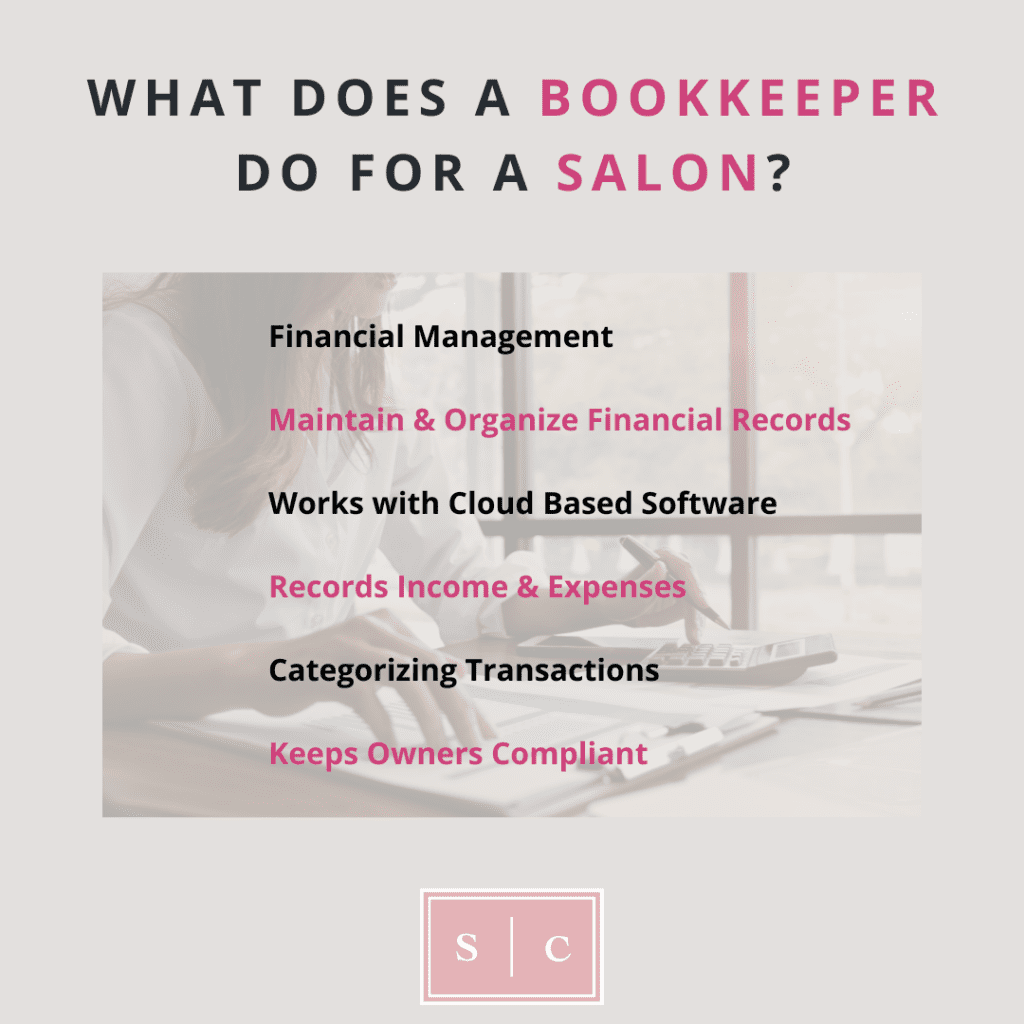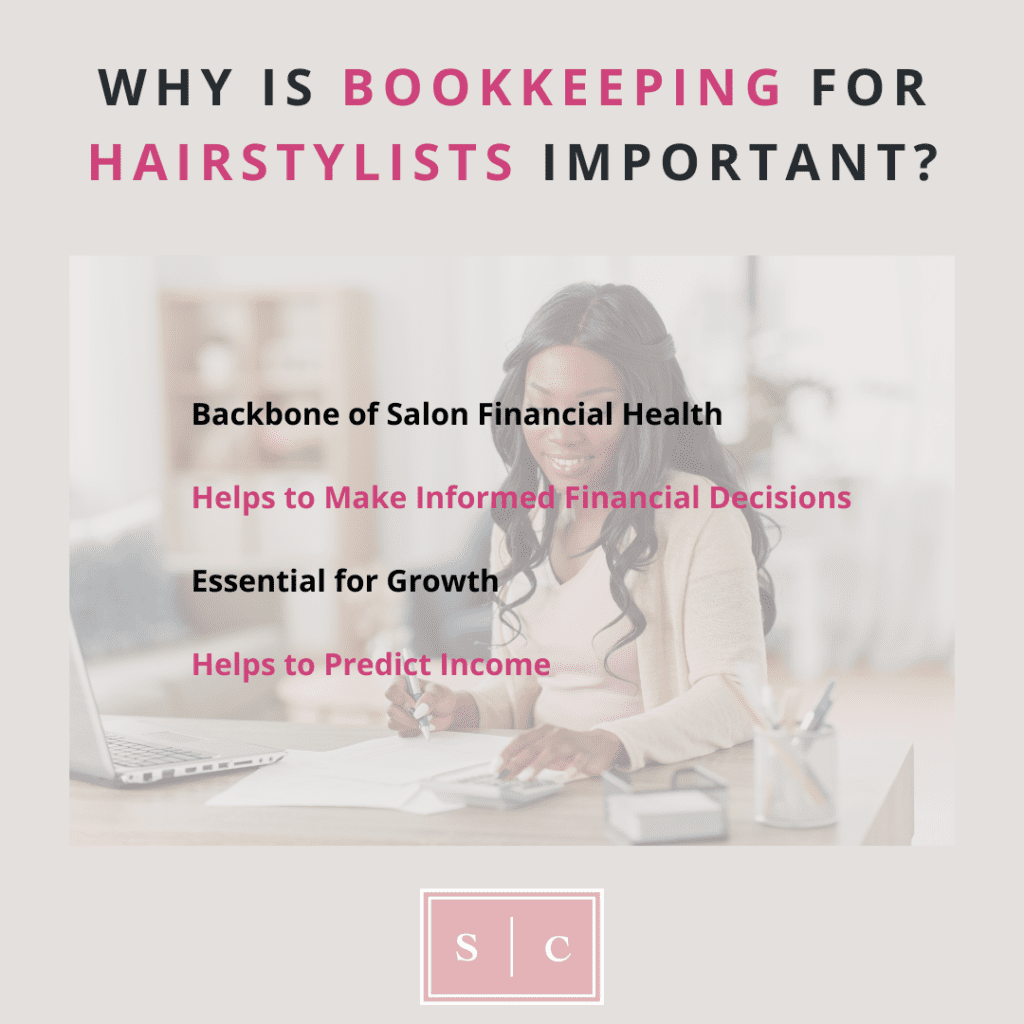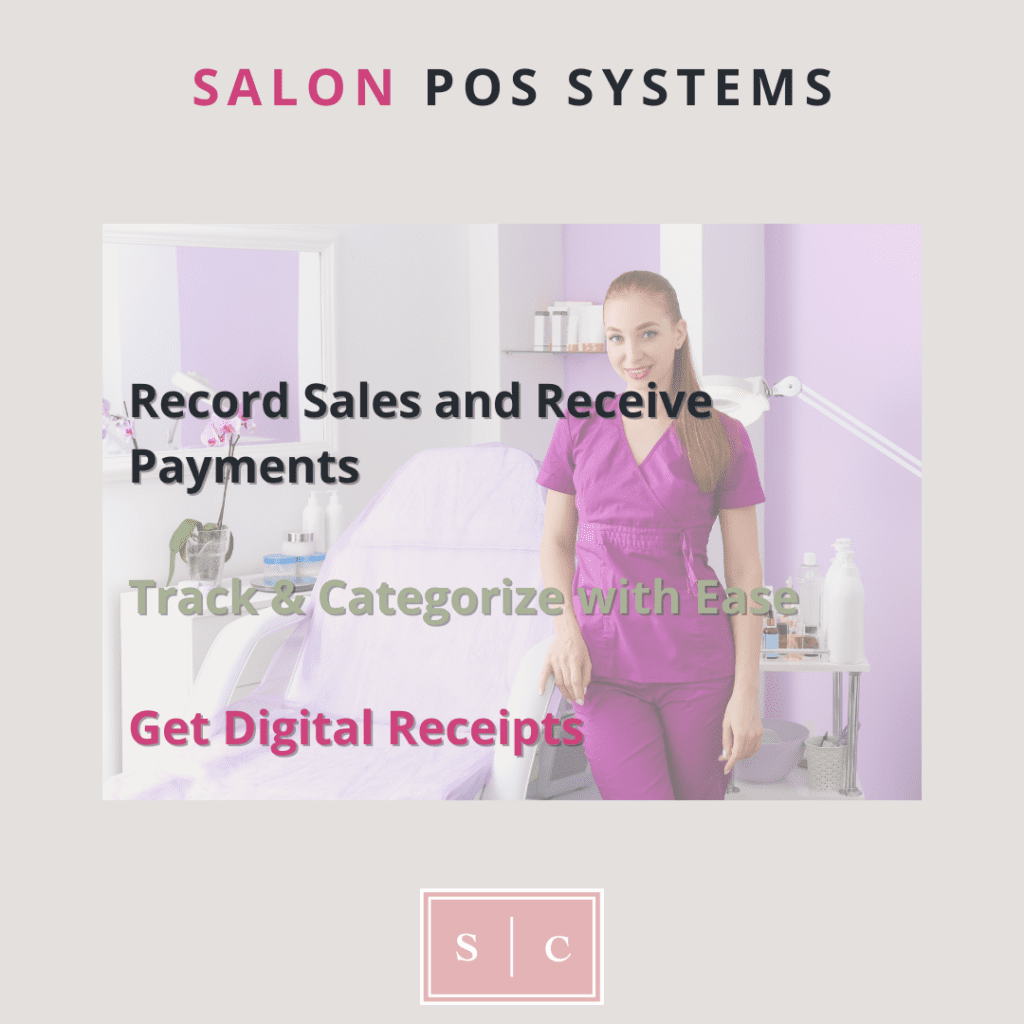In need of some sound financial advice for your salon business? We connected with William Ross of Salon Bookkeepers to get the skinny on hair stylist and salon bookkeeping tips and best practices.
Thank you for reading this post, don't forget to subscribe!
Hi there, my name is Susan Wos, I sell salon businesses and connect our industry through salon jobs and booth rental openings. I love to find helpful salon consultants, coaches and business helpers who provide true value to the salon industry.
When I came across William, I learned about the success he has had helping owners and self employed hair stylists with money management. I just had to pick his brain to get some tips you can add into your business, today!
Understand the differences between what an accountant does for salons and how hiring a salon bookkeeper saves you money in the long run. Below, you will find an interview I did with William and several great salon finance nuggets you can easily implement into salon financial planning.

A salon bookkeeping professional plays a crucial role in the financial management of a salon. Their primary responsibility is to maintain accurate and organized financial records which typically is done through a cloud-based accounting system.
For a salon, this includes recording all income from services, products, and any other sources, as well as tracking all business related expenses including those related to rent, utilities, product inventory, and staff wages. Bookkeepers categorize these financial transactions, ensuring that everything is properly accounted for and compliant with tax regulations.
They also handle tasks like bank reconciliation, which involves matching the salon’s financial records with actual bank statements, and creating financial reports that provide valuable insights into the salon’s financial performance. By managing these financial aspects, bookkeepers help salon owners make informed decisions, optimize their business, and ensure compliance with tax laws, ultimately contributing to the success and profitability of the salon.
An accountant provides higher-level financial analysis, tax planning, and strategic financial advice. They work hand-in-hand with a bookkeeping professional to ensure your salon’s financial success.
An accountant’s role is distinct from that of a salon bookkeeping professional, and both professionals serve valuable but different purposes. While a bookkeeper’s primary focus is on maintaining day-to-day financial records, ensuring transactions are correctly categorized and reconciled, an accountant takes a broader view.
Accountants typically come into play when more complex financial tasks are involved. They analyze financial data, create legal financial statements, and offer strategic financial advice.
Most accountants focus on tax strategies to ensure a salon has the lowest tax liability possible. However, for the recording and organization of financial transactions, a bookkeeping professional is often more cost-effective and practical.
By hiring a salon bookkeeper, salon owners can ensure that their financial records are kept in order. You will receive guidance on how to grow profitable as a company all while providing the necessary information for the accountant to provide more in-depth analysis and advice as needed.
By having an accountant and a bookkeeping professional, an independent beauty professional or salon owner are able to strike the balance between financial responsibilities in a way that maximizes efficiency and reduces costs.

Bookkeeping is the backbone of your salon’s financial health. It helps you track income, expenses, and make informed financial decisions. Having professional books means having a clear understanding of your hair salon’s finances.
Knowing your spending and revenue patterns helps you achieve better success in how to grow your business. Without the understanding of where your money is going and how to manage spend, it’s difficult to predict and grow your income.
Some stylists choose to tackle as many duties as possible in order to cut the cost of paying someone else to do them. However, this does not allow the stylist to focus on tasks that they should be prioritizing such as spending more time with clients, developing new skills and growing their business.
Having a dedicated bookkeeping professional affords the stylist the ability to focus on running other aspects of their business, while the bookkeeping professional supports the growth of their business by getting their finances organized and minimizing tax liabilities.
Bookkeeping plays an essential role in the financial health of a business. Basic salon bookkeeping and financial record-keeping are required by law.
Professional salon bookkeeping empowers business owners to make informed decisions and reduce risk of mismanaging funds by demonstrating a clearer financial picture or your salon’s financial performance.
Accounting software simplifies tax preparation by organizing your financial data. By connecting the accounting software to your salon software and bank feeds, information feeds automatically into the accounting software preventing you from forgetting to input data.
With all of the salon’s financial information in one place and organized, your reports are more accurate and easier to use when preparing your taxes.

Some accounting software allows you to manage inventory directly. With proper salon inventory management, you can track your product inventory and manage stock levels which reduces waste and allows you to make more informed purchasing decisions.
It typically begins with the initial input of your product inventory, including product details, quantities, and costs. As products are sold or used, the software automatically deducts the items from your inventory, keeping real-time records of stock levels.
This real-time tracking helps you avoid overstocking or running out of popular products. When it’s time to reorder, some accounting software solutions provide alerts or inventory reports that highlight which products need replenishing, simplifying the ordering process.
Additionally, the software can calculate the value of your remaining salon inventory for financial reporting purposes. This automated approach reduces the risk of errors.
It also saves time, and ensures you always have the right salon or spa products on hand to meet your clients’ needs, contributing to the overall efficiency and profitability of your salon.
Most stylist and salon owners choose to have a POS (point of sale) system to collect credit card sales from customers in person. Some also choose online booking software that allows you to collect card information for deposits or cancellation fees.
Most accounting software allows you to create invoices to send to customers to collect payments, and allow for recurring transactions through the use of sales receipts. Online payment options can streamline your revenue collection which allows for improved cash flow while providing an enhanced client experience.
There are many features to pay attention to when choosing the best accounting software to work with your salon. Here are 10 primary features to focus on:
Using accounting software allows you to significantly streamline your financial processes by automating various tasks, including expense tracking and income reporting. For salons that sell products, the accounting software helps efficiently manage inventory levels, track product sales and in many cases reorder items when necessary.
Having the accounting software also eases the burden of tax preparation by organizing your financial data in a way that is tax-friendly by generating essential reports which reduces the stress of tax season. This saves both you and the accountant time and money!
Additionally, you will be able to perform bank reconciliation which ensures your financial records align with your bank transactions. Implementing the right salon software saves you time and minimizes financial errors while allowing you to focus more on your clients and your team.
Hiring bookkeeping services as a hairstylist comes with a range of advantages. One of the most significant benefits is the access to industry specific, professional financial expertise.
Salon bookkeeping professionals are trained to handle financial records accurately and efficiently, ensuring that your salon’s financial data is well-organized and compliant with tax regulations.
This expertise not only reduces the risk of errors but also helps you gain valuable insights into your salon’s financial health. Furthermore, outsourcing bookkeeping saves you precious time, allowing you to focus on clients and the things you love to do in your business.
It’s also a cost-effective option as you avoid the expenses associated with hiring and training an in-house bookkeeper. Additionally, a skilled bookkeeping professional can assist with tax compliance, potentially reducing your tax liabilities and providing peace of mind.
Customized salon bookkeeping services can be tailored to your unique needs as a business owner. This ensures you receive the level of support that best suits your specific financial requirements.
Cloud-based accounting software works great for any business, but especially salons and beauty professionals . Cloud-based salon software allows you to access your financial data from anywhere, whether you’re at the salon, at home, or on the go, offering flexibility and convenience.
Additionally, it ensures that the salon data is automatically backed up and secure, eliminating the risk of data loss. This feature is particularly valuable for beauty professionals who rely on accurate and up-to-date financial records to manage their salon business efficiently.
Cloud-based solutions also often provide cost-effective subscription models, so you don’t have to worry about high upfront costs. The ability to collaborate with salon bookkeeping professionals, accountants and tax pros in real time is another key advantage, simplifying financial management and ensuring your salon’s success.
QuickBooks is an excellent accounting software tool that provides many beneficial solutions to hairdressers, beauty professionals and salon owners. It’s a versatile accounting system that can be tailored to suit the specific financial needs of your salon business.
QuickBooks provides user-friendly features for invoicing, expense tracking, and financial reporting, making it easy for beauty professionals to manage their salon’s finances effectively. It offers the flexibility to track income, manage expenses, and even handle payroll if you have employees.
Additionally, QuickBooks allows for integration with other tools, such as appointment scheduling software or client management systems, which can streamline salon operations. While QuickBooks may require some initial setup and learning, its broad capabilities and widespread use in various industries make it a solid choice for hairdressers and beauticians looking to maintain accurate financial records and make informed business decisions.
The simplest and most hassle-free way to keep your salon records is by using dedicated salon management software and cloud-based accounting tools. These platforms are designed to simplify record-keeping for salon owners.
They offer user-friendly interfaces, pre-configured templates for common salon transactions like appointments, and easy expense tracking. You can maintain comprehensive digital records, including client details, scheduling, financial transactions, and inventory, all in one place.
These systems often automate many of the record-keeping tasks, such as generating sales receipts and financial reports which reduces the burden on salon owners. Plus, they provide data security and backup features, ensuring the safety of your records.
By integrating appointment scheduling with financial data, these solutions offer a seamless way to manage your salon’s finances, enhancing accuracy and saving you time. Salon management software and cloud-based accounting software is the easiest and best way to maintain your salon records.
They provide you with the tools to stay organized, compliant, and focused on delivering exceptional services to your clients.
Salons use a point of sale (POS) system to record sales and receive payments. Many POS systems are built into salon softwares while other stand alone systems work in tangent with one. Modern POS systems simplify the process by automatically tracking and categorizing sales, making it easy for salon owners and staff to record transactions accurately.
These systems provide digital receipts and can integrate with your bookkeeping software, ensuring that sales data is seamlessly recorded and organized. This integration not only reduces the risk of errors but also facilitates collaboration with bookkeeping professionals and accountants which helps with your overall financial management.
They are able to access your up-to-date salon financial information, which streamlines their work and allows them to provide more insightful financial guidance. By implementing an efficient POS system, salon owners can ensure that sales are recorded accurately. This supports healthy financial management and makes collaboration with financial experts more effective and straightforward.
Thank you, William, for this information! I know I learned a lot from this conversation as I am sure our readers have as well. Make sure to check out William’s service offerings on our salon consultancy page.
To schedule a free consultation with William, please visit his booking page. Thank you for your time, and best wishes to all salon business owners for prosperity and financial freedom!
Yours in service,

The blog post you’ve just read may contain affiliate links. This means that if you click on these links we may earn a small commission at no additional cost to you. These commissions help support the maintenance and growth of the blog. We only recommend products and services that I genuinely believe in and have personally researched or used.